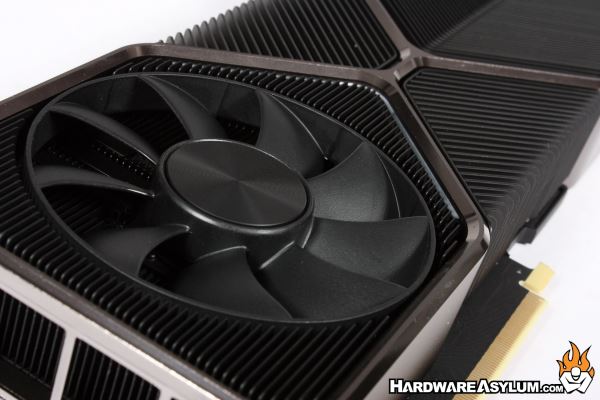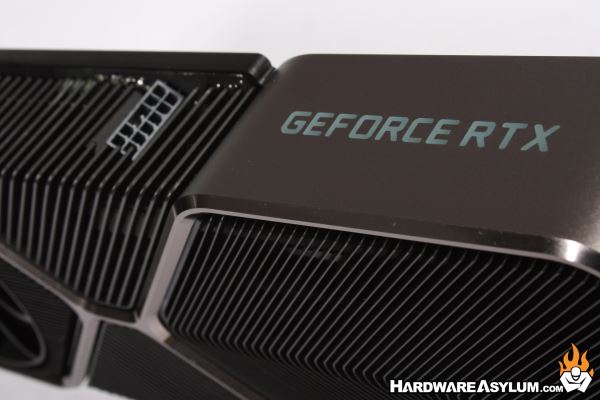Nvidia RTX 3080 Ti Video Card Review
Author: Dennis GarciaConclusion
In this review we look at the new GeForce RTX 3080 Ti from NVIDIA. This is the second release of the RTX 30-Series that not only unlocks more of the Ampere microarchitecture but increases overall gaming performance to levels just shy of the RTX 3090 and faster than anything I/we have ever tested.
When it comes to specs the RTX 3080 Ti has over twice the power of the RTX 2080 Ti with a total of 80 SM Units, 10240 CUDA Cores, 320 3rd Gen Tensor Cores and 80 2nd Gen RT Cores, 320 Texture Units and 112 ROPs. If you are a spec hound that is only marginal boost across everything except for CUDA cores which shows over a 2x boost in number and yet fewer Tensor cores which have become more efficient with the third generation.
Combine that with a wider 384-Bit memory interface, 12GB of GDDR6x memory and a memory clock of 9500Mhz and you have a monster number cruncher that will not only chew through games but blister the framerates with the sweet founds of single GPU gaming!
The 30-Series has come with a new heatsink design that not only compliments the more compact form factor but promises to be more efficient and offering a new flow pattern. When it comes to keeping the GPU cool the new design is hands down a clear winner. However, I did note that how the hot exhaust air is handled is less than ideal and could present some serious issues for those running NVMe SSDs.

Overall performance was amazing and provided a 100% boost in performance over the GTX 1080 Ti and started to show dated the RTX 2080 Super really is. Both of these cards were powerhouses of their day and are respectable gaming cards but, leave so much on the table when you start taking advantage of what new games have to deliver.
For this review I tested some of the RTX features in the new Metro Exodus Enhanced Edition and to be honest, I didn’t see many changes visually until I started to compare the screens as an overlay and side by side. It was then you could clearly see what RTX brings to the table along with a nice boost in performance. My benchmarks showed a 20+ FPS improvement at 25x16 with DLSS enabled which not only cleaned up the visuals but made everything more efficient.
Similar boosts could bee seen in other games however, it is clear that the RTX 3080 Ti is designed to push pixels at 4k and while my Core i9 10900k is one of the fastest gaming processors it still couldn’t feed the hungry 3080Ti at certain resolutions.

Overclocking on high-end graphics has “always” been very incremental. Old graphics cards were limited by the silicon but when you could get them to overclock every Mhz counted. For modern cards like the GTX 1080 Ti, RTX 2080 Ti and RTX 3080 Ti the overclocking process has changed and the clock speeds printed on the box are merely guidelines and likely the lowest number you will ever encounter. If you can keep these cards cool you will enjoy the full effect of Nvidia Boost technology making manual overclocks rather pointless.
In fact, most of the overclocks “you” are doing fall within the normal Boost map which can actually hurt performance. Of course, this wouldn’t be Hardware Asylum without some clock tweaks and I am proud to say that 2100Mhz is attainable and gets you 1000-2000 extra points in 3DMark benchmarks and no discernable framerate improvement in games.
NVIDIA makes it so easy to overclock you shouldn’t even bother trying.
Overall, I would fully recommend the RTX 3080 Ti. The card is amazingly fast and designed for 4K gaming. Cards that came before this one could do 4k but, didn’t have the power behind it to really embrace the pixel poshing power required to make 4k enjoyable.
Now, we just need to find one!
Extra Power Where it is Needed
Sleek New Design
Silent Operation
Off the Charts RTX Performance
The Only Way to Play RTX
Card is a heat monster
Founders Edition heatsink blows directly on motherboard
Requires a power adaptor making cable routing a chore

Recommend
https://www.hardwareasylum.com

